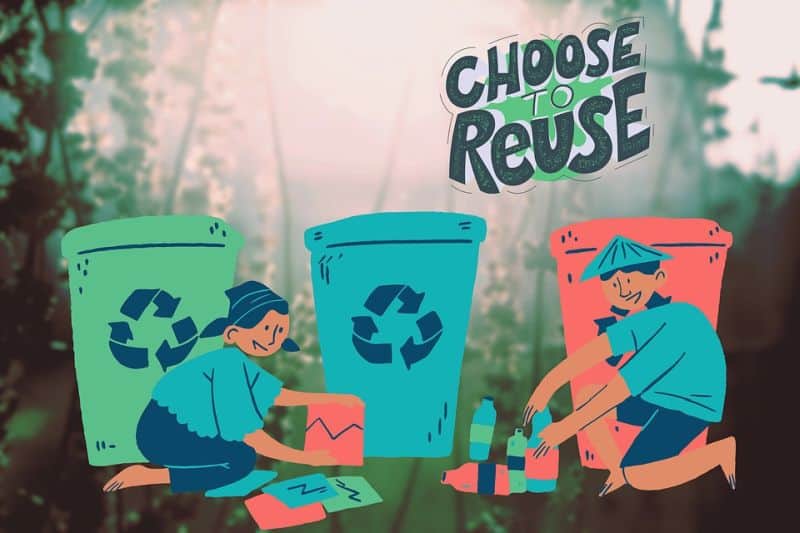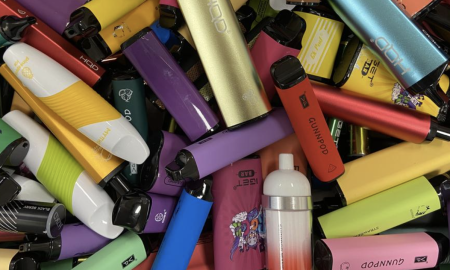
Washington, DC, a city renowned for its rich history and vibrant culture, is also becoming a model for sustainable living. The residents of DC are increasingly aware of our environmental challenges and are eager to contribute to a greener future. One crucial aspect of this is how we manage our waste.
Implementing eco-friendly waste disposal solutions is a necessity and a responsibility for every Washingtonian. In this article, we will explore various methods and practices that can help make waste disposal more sustainable, ensuring that our city remains beautiful and healthy for future generations. For residents looking to make a positive change, understanding Washington DC’s sustainable waste solutions is the first step towards a cleaner environment.
The Importance of Recycling and Composting
Recycling and composting are fundamental components of any eco-friendly waste management strategy. In Washington, DC, several programs and facilities are dedicated to making recycling as easy and effective as possible. By separating recyclables such as paper, glass, plastics, and metals from regular waste, we can significantly reduce the amount of waste that ends up in landfills.
The District’s Department of Public Works provides comprehensive recycling services, including curbside pickup for residents. It is essential to stay informed about what materials are recyclable and avoid contamination by rinsing containers and removing food residue. Educating oneself about recycling guidelines can significantly enhance the efficiency of these programs.
Composting is another powerful tool for reducing waste. Organic waste, such as food scraps and yard waste, can be turned into nutrient-rich compost that enriches the soil and reduces the need for chemical fertilizers. DC residents have access to several composting facilities and community composting programs. Additionally, home composting is an excellent option for those with gardens or even small outdoor spaces. Simple composting bins or worm composting systems can transform kitchen waste into valuable compost.
Reducing and Reusing: Key Strategies for Waste Minimization
While recycling and composting are crucial, reducing the amount of waste we produce in the first place is even more impactful. One of the most effective ways to do this is by embracing a minimalist lifestyle and making conscious purchasing decisions. By buying only what we need and opting for products with minimal or recyclable packaging, we can significantly reduce waste.
Reusing items is another vital strategy. Many everyday items can be repurposed rather than thrown away. For instance, glass jars can be used for storage, old clothing can be turned into cleaning rags, and various household items can be donated to charity instead of discarded. Thrift shops and donation centers around Washington, DC, are excellent places to give a second life to items that are no longer needed.
Innovative Waste Disposal Technologies
Washington, DC, is also home to several innovative waste disposal technologies that are leading the way in sustainability. One such innovation is using anaerobic digestion facilities, which convert organic waste into biogas and compost. This process not only diverts waste from landfills but also generates renewable energy, providing a dual environmental benefit.
Moreover, the city has been exploring advanced recycling technologies, such as chemical recycling, which can break down plastics into their original monomers, allowing for endless recycling without degradation of quality. These technologies are still in their nascent stages but hold great promise for the future of waste management.
Residents can also take advantage of electronic waste recycling programs. E-waste, such as old computers, smartphones, and other electronics, contains hazardous materials that should not end up in landfills. Specialized recycling centers in Washington, DC, ensure that these items are disposed of safely and their valuable materials are recovered.
Community Initiatives and Personal Responsibility
The success of eco-friendly waste disposal solutions heavily relies on community involvement and personal responsibility. Participating in local clean-up events, supporting legislation promoting sustainable practices, and spreading awareness about the importance of proper waste disposal are all ways residents can contribute to a greener Washington, DC. Active participation in community recycling programs, attending town hall meetings, and advocating for better waste management policies can drive significant changes at the local level. Moreover, residents can organize or join neighborhood clean-up drives, which help keep the community clean and foster a sense of shared responsibility and community spirit.
Educating children and young adults about sustainable waste practices is also crucial. Schools and community groups can play a significant role in instilling these values early on, ensuring that the next generation continues the efforts to protect our environment. Incorporating environmental education into school curricula can help students understand the importance of waste management and the impact of waste on the planet. Hands-on activities, such as school recycling programs, composting projects, and eco-clubs, make learning about sustainability engaging and practical.
Conclusion
Eco-friendly waste disposal is not just an option but a necessity for maintaining the beauty and health of Washington, D.C. Residents can significantly impact their environment through recycling, composting, reducing, reusing, and embracing innovative technologies. Community involvement and personal responsibility are critical to the success of these efforts. By understanding and implementing sustainable waste solutions, we can ensure that our city remains a vibrant and healthy place to live for generations.


















Follow Us